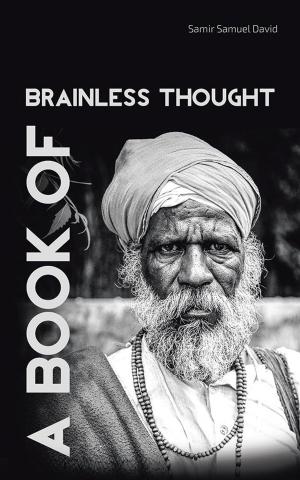Rose & Smoke
Nonfiction, Religion & Spirituality, Inspiration & Meditation, Spirituality, Fiction & Literature, Poetry, Philosophy| Author: | Jawahar Lal Sharma | ISBN: | 9781482888638 |
| Publisher: | Partridge Publishing India | Publication: | March 16, 2017 |
| Imprint: | Partridge Publishing India | Language: | English |
| Author: | Jawahar Lal Sharma |
| ISBN: | 9781482888638 |
| Publisher: | Partridge Publishing India |
| Publication: | March 16, 2017 |
| Imprint: | Partridge Publishing India |
| Language: | English |
Such a voice of a poet is heard after many decades. Although the language at most places is simple, the theme is intriguing. He calls him and searches up to infinity. He looks at the plight of the downtrodden and challenges the royals and the rich. The talent and bravery of these low strata cannot be suppressed. One day it will come to sight. Poet mocks at the blind followers of the political leaders who lose their identity under the shadow of their master and join their notes in their notes. Pining for the divine beloved, the poet calls and cries. He feels helpless as he is unheard. It looks like a melodious song of Meera or a Sufi. The poets relation with the divine is eternal, and he cannot be secluded. He finds his place on the list of the lord like a flute of Krishna. He moves, but his hands cannot accede him. He is sorry. Perhaps it is not his lot to be heard of and to rejoice in his communion. The poet feels more sinned against sinning. What can be more painful than that he is unable to shed tears? He welcomes a test for him by putting himself into the fire of agony and testifying his sanctity. It is smoldering cell by cell but with no escape. It is a belated, hard, and prolonged punishment to be separated.
Such a voice of a poet is heard after many decades. Although the language at most places is simple, the theme is intriguing. He calls him and searches up to infinity. He looks at the plight of the downtrodden and challenges the royals and the rich. The talent and bravery of these low strata cannot be suppressed. One day it will come to sight. Poet mocks at the blind followers of the political leaders who lose their identity under the shadow of their master and join their notes in their notes. Pining for the divine beloved, the poet calls and cries. He feels helpless as he is unheard. It looks like a melodious song of Meera or a Sufi. The poets relation with the divine is eternal, and he cannot be secluded. He finds his place on the list of the lord like a flute of Krishna. He moves, but his hands cannot accede him. He is sorry. Perhaps it is not his lot to be heard of and to rejoice in his communion. The poet feels more sinned against sinning. What can be more painful than that he is unable to shed tears? He welcomes a test for him by putting himself into the fire of agony and testifying his sanctity. It is smoldering cell by cell but with no escape. It is a belated, hard, and prolonged punishment to be separated.















